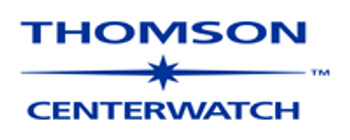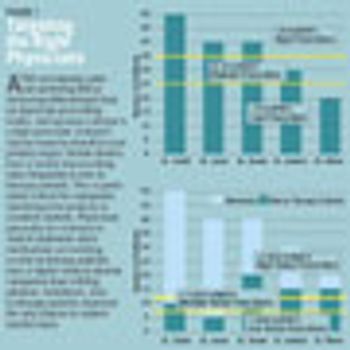
Legal experts analyze the differences between the first two Vioxx trials and what allowed Merck to be successful this time around. They also offer insight about what to expect going forward.

Legal experts analyze the differences between the first two Vioxx trials and what allowed Merck to be successful this time around. They also offer insight about what to expect going forward.

The Critical Path is alive and well, as demonstrated by an agreement between FDA and Massachusetts-based BG Medicine to identify molecules associated with liver toxicity in animal trials.

PharmRep06Rates

PharmRep06Cal

PharmRep06CalRates

PhRMA Guiding Principle number 10 calls for the banishment of reminder ads. While there are many reasons why drug ads truly advance the public health, there are no good arguments for why reminder ads advance public health in any way.

Leo H. Sternbach's death feels like the end of an era, a time when the new drugs came easily and it was possible to have a huge impact on patients, then turn around and do it again.

Merck and GSK’s cervical cancer vaccines promise great benefits to women-but there are several key hurdles to clear before the drugs can become the blockbusters the companies are predicting. Analysts debate how long it will take it will take to overcome these obstacles.

Will vaccines against cervical cancer be the blockbusters that Merck and GSK are predicting? Or will issues of cost-effectiveness and parental reluctance hold them back? The experts weigh in on the debate.

Thomson CenterWatch recently launched a content management service to assist sponsors in complying with the latest requirements for clinical trial transparency. This web based program serves as a tool for sponsors to register their active clinical trials and publish their clinical trial results while following the data field guidelines established by clinicaltrials.gov and the World Health Organization and ICMJE.

ABthrax takes advantage of new knowledge about anthrax to fight the bacteria’s lethal toxin.

Wolters Kluwer Health is the professional’s first choice for knowledge-based information services and decision-support tools for the pharmaceutical, biotechnology and life science industries.

Schizophrenia experts interpret the result of an extensive head-to-head comparison of five treatments. Schizophrenia patients frequently change or discontinue treatments. The jury is out on some side effects.

Analysis of a new report that says safety-related product withdrawals have not increased since the approval process sped up in the 1990s.

Scientists at the University of Michigan found a brain mechanism that increases the release of pain-fighting endorphins when the subject was given a placebo. The implication? Better clinical trials, and maybe, new methods of pain relief, researchers say.

An ingenious pharmacogenetic test from Third Wave Technologies tests for the presence of a genetic change that inhibits metabolism of irinotecan. Oncology specialists explain how it works, and why it matters.

Legal experts play Monday-morning quarterback with Merck's first Vioxx loss. The lessons, they say: learn to present science better, pay attention to jury emotion and, oh yes, worry about shareholder lawsuits.

Migraine specialist abandons one problematic drug and maintains its position by filing an NDA the following week.

Only a year after the National Human Genome Research Institute called for improving sequencing technology, two new methods were announced in the same week. What will the goal of a $1000 human genome mean for medicine and disease research?

A .pdf form for reporting promotions and accolades to appear in Pharmaceutical Representative magazine.

Experts offer their opinion on how Takeda's Rozerem, the first non-controlled sleep aid, will be received by doctors and patients.

Teva's recent purchase of Ivax has analysts wondering where the push for bigger and more global generic manufacturing companies will take the industry.

Prescription drug abuse nearly doubled over a three-year period, according to a new report. In addition to the statistics that you may have seen elsewhere, the study’s authors recommend ways to curb this trend including submitting all promotional material for controlled drugs to FDA.

Exactly what is Nonarteritic Ischemic Optic Neuropathy and how might it be linked to the use of ED drugs?

The trend of public/private partnerships to combat diseases of the developing world continues with collaboration between GSK and the International AIDS Vaccine Initiative. We examine the details of the deal, the science GSK plans to use and the future of this trend.

What Pharma Wants From IT Today

It's an open question whether a pharmaceutical company really needs to have the drug testing process inside its corporate walls, or whether they really should be focusing much more on building effective relationships, in terms of building awareness and acceptance of their products, with both the physicians and end consumers.

If a physician wants to use protected healthcare information (PHI) for research purposes, particularly if the PHI is going to be published as part of research results, an authorization or waiver will be required.

R&D leaders face the unenviable choice of either dividing their time between science and operations, or focusing on one to the detriment of the other.